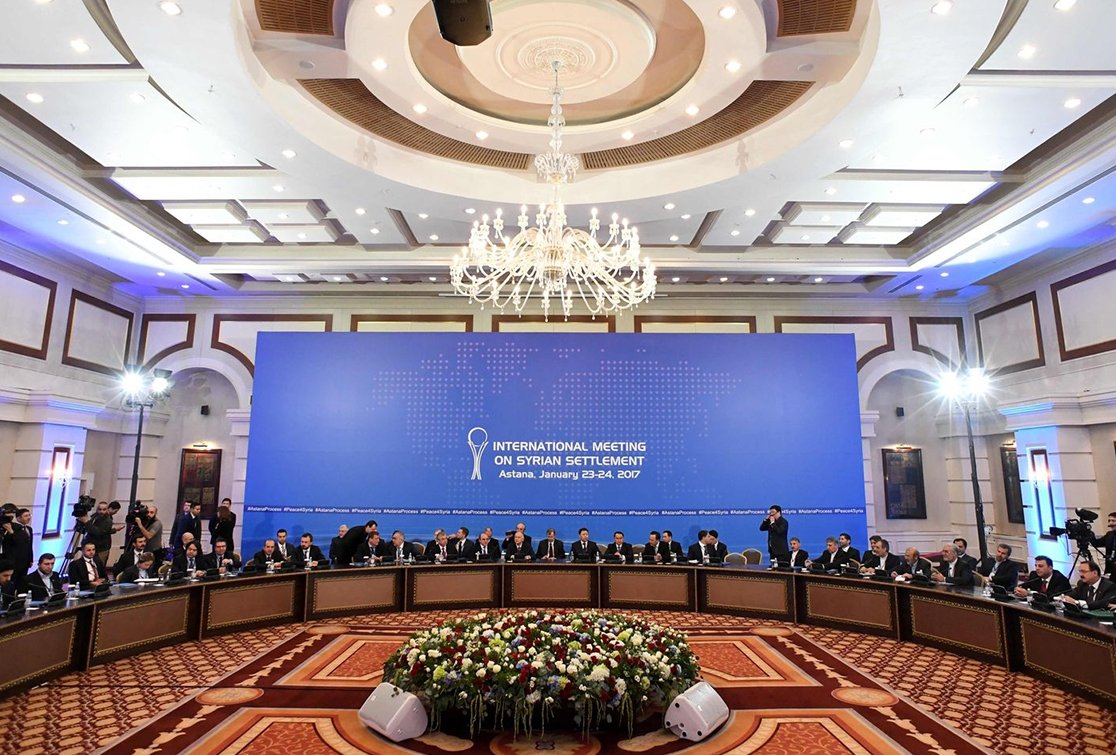All of Geneva and Astana Rounds Have Failed to Reveal the Fate of one Missing or Disappeared Person

Source: APA/AFP/KIRILL KUDRYAVTSEV
SNHR said, in a report released today, that the upcoming Geneva and Astana rounds should not skip the detainees and Missing issue as all of Geneva and Astana Rounds had failed to reveal the fate of one forcibly-disappeared or missing person so far.
The report notes that the first Security Council Resolutions to address Syria were 2041 and 2042 in April 2012, and both Resolutions highlighted the political arrest and enforced-disappearance issue, while Resolution 2139, February 2014, called for the immediate cease of enforced-disappearance practices, strongly condemning it, same as paragraph 12 of Resolution 2254 in December 2015. However, all of these Resolutions were merely words, and have all failed to reveal even the fate of one missing or forcibly-disappeared person, or set free any prisons of conscience, political figures, women, or children.
The report adds that the detainees issue was present during discussions and on the agenda in Geneva talks even though the progress has been almost non-existent. However, the last three rounds were almost completely devoid of any discussion or reference to this sensitive issue, and the same scenario has repeated itself in Astana talks since the first meeting in January 2017.
The report stresses that omitting the detainees and forcibly-disappeared persons file has been deliberate under the pretext of it being too complicated and might hinder the political process, as SNHR, the report adds, has sensed that, where it was present at a number of Geneva rounds either in an advisory capacity or at the civil society room.
Fadel Abdul Ghany, chairman of SNHR, adds:
“If Astana fails, under the sponsorship of the major allies and supporters of the Syrian regime, to simply reveal the fates of the Syrian men and women who have been forcibly-disappeared mainly at the hands of the Syrian regime, let alone set some of them free, this will demonstrate the pointlessness of these talks. The Syrian people won’t bother to pay attention to any negotiation path as long as there is no notable progress in the detainees issue.”
The report sheds light on numbers of detainees and forcibly-disappeared persons, adding that the Security Council, the United Nations General Assembly, and the negotiating parties are responsible for those victims.
The report documents no less than 106,727 detainees from March 2011 to February 2017 – 90% of them have become forcibly-disappeared, as the report stresses that the Syrian regime were responsible for 87% of them. The report also records that no less than 5,024 have been arrested, as of this writing, since January 23, 2017, when Astana talks started.
Furthermore, the report highlights forcibly-disappeared persons, as 85,036 fell victim to the crime of enforced-disappearance from March 2011 until August 2017, including 5,027 since Astana talks started.
In addition, the report records that 13,104 individuals died due to torture from March 2011 to September 2017.
The report notes that the Syrian regime sought to pursue the civil movement’s figures until the end 2013, when we noticed a shift in the Syrian regime’s strategy in 2014, as its forces suffered from wide defections triggered by the Syrian regime killing its people themselves. To compensate the shortage, the Syrian regime resorted to widespread arrests for the purpose of sending people to the first clash lines, as thousands of youths have been arrested and many of those were killed in the spiral of this coercive strategy. This was particularly seen in the areas that underwent truces or settlements, where Syrian regime forces carried out widespread arrests among the people who chose to stay, sending them involuntarily to battlefronts.
According to the report, most release cases that we have recorded were done as part of exchange deals between the Syrian regime and armed opposition factions, while other detainees were released from central prisons after appearing before a show terrorism court after the detainee’s sentence has ended. This is usually done after a confession to charges is extracted under torture and without an attorney in order to obtain large sums of money that the detainee would pay just to save his life and receive a prison sentence instead.
The report calls on the United Nations and the sponsoring states at Astana to form an impartial special committee to monitor enforced-disappearance cases, and make progress in revealing the fate of nearly 86,000 missing persons in Syria, including 90% at the hands of Syrian regime forces.
Also, the report calls for applying immediate pressure on all parties in order to immediately reveal their detention records per a timetable. In the meantime, detention places should be revealed immediately, and humanitarian organizations and the International Committee of the Red Cross should be allowed to visit them directly. Additionally, the report calls for the release of children and women, and to stop holding families and friends as war hostages.
The report urges the official who was newly appointed in charge of the detainee file at the UN special envoy to include the detainees issue in the upcoming round 8 of Geneva talks, as this issue is of a greater importance to the Syrian people than other far issues that can be jointly addressed later by the parties after a political settlement is reached, such as the constitution.


